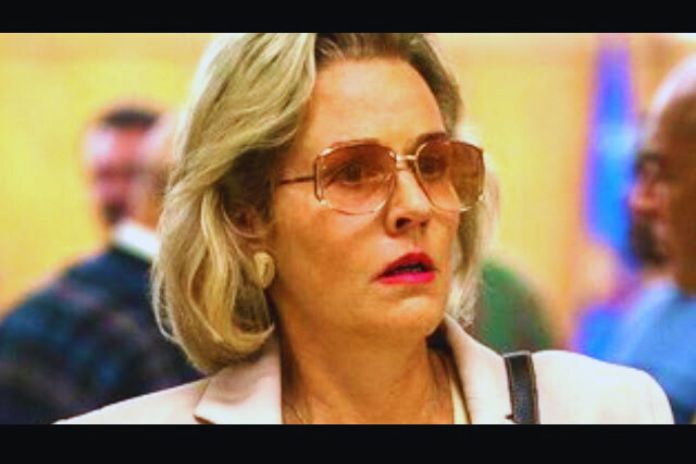Whatever Happened To Joyce Dahmer?

Joyce Dahmer, who was born in 1920 in Meridian, Mississippi, was a civil rights activist and leader. Other milestones to the civil rights movement 1960: Starting the SNCC National Student Nonviolent Coordinating Committee and the CORE Congress of Racial Equality.
Around that time, Joyce Dahmer helped to organize protests against segregation laws, and fought for the right of African Americans to vote, he said. She also served on committees that promoted equal schools and better life for Mississippians as a whole from the state level.
In 1964, she was voted onto the executive committee of SNCC, one of only two women to hold that position. She won numerous awards for her work, and was named one of Fortune Magazine’s “100 Most Influential Women.”
Impact Of Joyce Dahmer Works
Yes, Joyce Dahmer helped lead the civil rights movement. And her activism and leadership in those efforts spotlighted systemic discrimination directed at African Americans across Mississippi and the country, the writers said.
This caused her to organize and take part in peaceful protests against the segregation laws, fight for the right to vote and better education and housing for African Americans in her state.
Her role extended, as well, into civil rights as a wider project; her work was a demonstration case that encouraged other activists throughout the country about what organising and pressuring could accomplish.
By supporting the fighting groups themselves directly and by supporting good policies by making Joyce a spectacle in the media, by making her here at home and in the world something the media wanted to see and, despite themselves, report on, and thus making it inconceivable for the rest of us not to see too.
As one of a small number of women who were part of SNCC’s executive committee during this time, she helped to draw attention, finally, to women’s leadership in movements and to the idea that collective action could be an agent of change.
That legacy should be a comfort to Ms. Dahmer and I sorely wish I could assume she finds it so, because despite how hard things still are in much of this country, we know they have been better at times, and that change has in no small part been possible thanks to the courage and labor of people like you.
Legacy Of Joyce Dahmer
Joyce Dahmer hasn’t just been a trailblazer in her career path, but she’s also been a trailblazer of service within her local community in Meridian, Mississippi. Joyce Dahmer Drive One of Several Streets Named in Her Honor, 1981
And an illustration of how deeply she was respected and loved by the community where she lived and worked — Joyce inspired other civil rights workers around the country who witnessed what could be achieved with concerted effort and unwavering argument.
Her work led to more voting rights, educational opportunities and improved housing in black communities all over the state of Mississippi, men and women who owe fruits of her labor today.
JOYCE DAHMER SCHOLARSHIP FUND Established in 1994 to preserve gains of the civil rights movement and make sure the next generation of Americans benefits from the progress made through civil rights.
Early Life Of Of Joyce Dahmer
The 1950s and 60s’ civil rights movement was one of the most significant shifts in American history. And through the relentless effort of millions of people, many of whom came from other sections of society, African Americans fought and won hard-earned gains from the passage and enforcement of desegregation laws, to the right to vote, to the right to an education and a job.
Those national events became a catalyst for activists to coalesce around a shared goal: seeking race equity including at organizations and humanitarian causes.
They’re groups that are committed to driving everything from economic justice to educational reform, people who help mobilize voters, get people access to health care and so much more in pursuit of creating social change, whether they’re lobbying politicians or blocking a street corner in a local community.
They also hoped to inform the public about the rights granted to them by law, so that citizens could defend themselves against discrimination, or unfair treatment.
Beyond and including grassroots movement work, some of these founders went to pursue careers in the international humanitarian and heal communities of the less privileged and to restore damaged races to each other in society’s advocates and become involved in activities such as providing aid to communities in need or creating programs aimed at repairing relations between those who are socially segregated.
In this, they were trying to help, certainly, but also to make us all understand a little more if we were rich, and if we were poor, or if we were white, and if we were black or at least know us as a people, of all classes, yes.
So, in closing, We owe The Civil Rights Movement for the good we all the Americans all lived through since but, the United States of America still has a long way to go how far still, Together, and all as one nation united as Americans we have to go further and we have to lift this nation to its ideal of one of equality of its people!
We’ve had it up to here with the struggles of so many ones like the two who fought through its igneous beginnings they’ll take us through to now let s go forward build this and beyond we must respect for what they did cause they that come after us are gonna have better than what we have today.
Who Is Joyce Dahmer Patterned After?
Joyce Dahmer An inspiration to fight for a better world and a civil right activist. Ghislaine”s hard work and bravery in literally the most impossible circumstances is living proof that this is possible — when not just one woman, but all women, step into the rings and demand to be heard!
Her work for SNCC, CORE and MFDP allowed her to represent not only activists, but also to advocate for initiatives that would aid the state’s African American community.
To Joyce Dahmer, and what her life can teach us today, too, the rest of us, about fighting injustice, the big and little indignities of it, about not giving up the fight, never giving up the fight for what we want. There can be no truly inspiring transformation of our society in honor of Ms. Dahmer’s hard-brave name (a richly deserved honor) without selfless work, which is hard and brave.
Looking at the influence she wielded in her time, it’s a marvel what one person can achieve when their sole goal is improving the place in which they live; may you do the same in the wake of her death.
Conclusion
Joyce Dahmer, she’s going to be an old lady they remember for years and years. Her determination to fight on and her iron will in the face of such adversity serves as a lesson to us all that if we push hard enough; we can change the world together.
It wasn’t just that her work made tangible and measurable differences: laws pending desegregation, the right to vote, better housing, education for the people of Mississippi. She and her husband-fostered greater knowledge and awareness between the races that still exist today.
Through her example we are taught that we have the capacity to stand and be the guide under the most extreme adversity. And that is a quote for all eternity that will forever be associated with Ms. Dahmer.
A symbol for the civil rights movement with a narrative extending beyond state lines (a narrative shaped largely by televised images of racism), he’s personified struggle.
